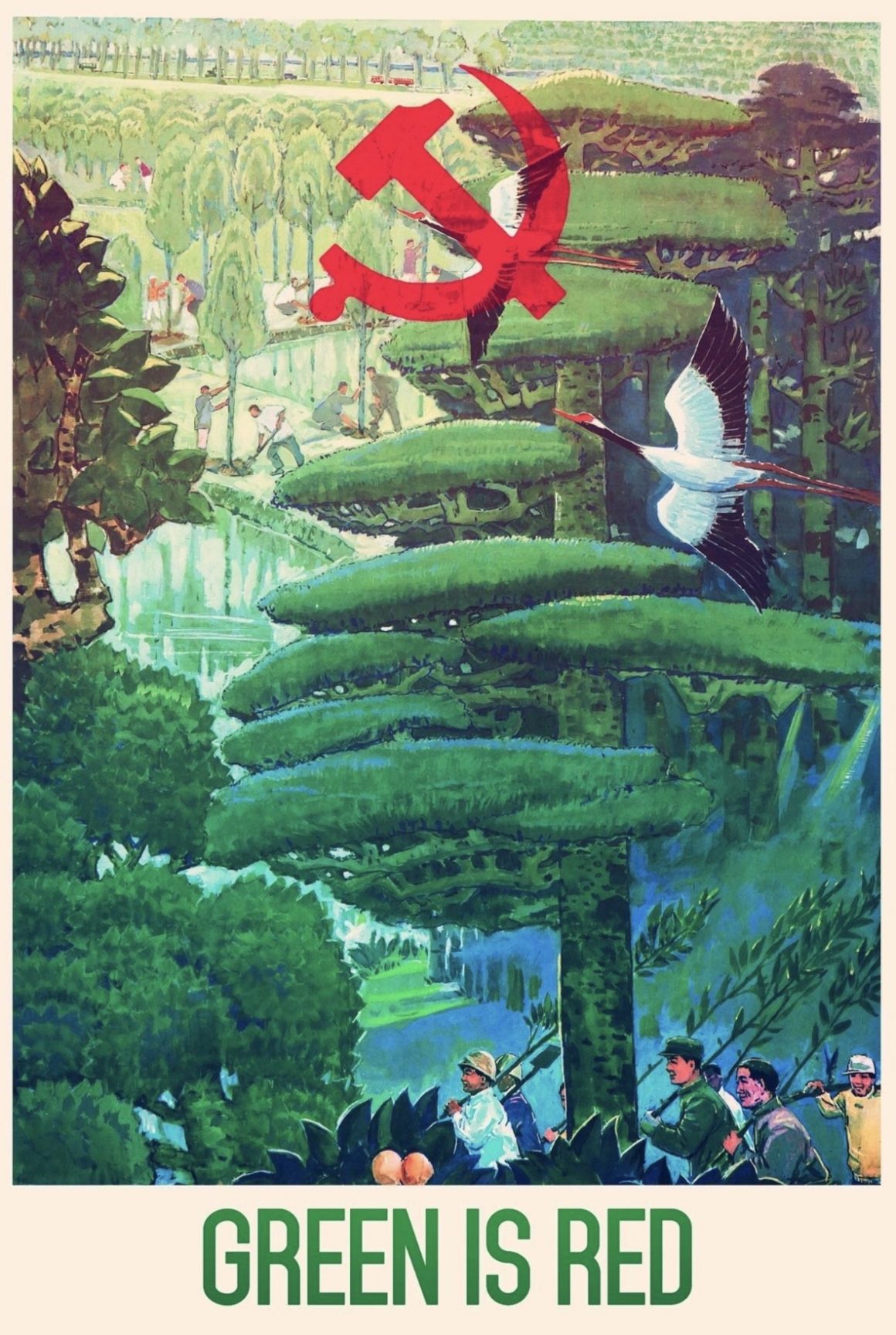If a certain social system is to blame for the destruction of the environment, and for the global poverty that this destruction is exacerbating, then another social system can rectify both of these crises. From a Marxist perspective, that’s the key to responding to environmental and economic injustice, because Marxism is a theory of societal development. It provides the analytical framework for seeing that the stage of socioeconomic advancement that most of the globe is presently in doesn’t have to be its final stage, that there can be a future where the exploitation behind ecological catastrophe and poverty is made extinct.
Pro-capitalists rationalize that among the options available under today’s predominant economic model, it’s justifiable for most of the world’s workers to labor for extremely low wages, with this argument implicitly extending to the harm that corporations do to the global ecology. But if this “there’s no alternative” claim is true, why does the system these commentators defend have to maintain itself by constantly working to hold back improvements that would absolutely be reachable, except for the system’s aggressive efforts to prevent them? Why is suppression of workers’ rights so built into the system that even the system’s lowest-level enforcers, like the management at sweatshops, are able to use violence to force the workers into submission? Why has Monsanto patented genetically modified plants so that it can make a monopoly out of its global pesticide business, at the expense both of the local farmers who go into debt as a consequence and at the expense of the biosphere? Why do garment companies willfully neglect factory architecture standards to maximize returns, to the effect that their workers regularly perish from cave-ins? Can these types of practices truly be called unavoidable fixtures of modern civilization? They continue to be normal not because they’re inevitable, but because they’re active measures that those who profit from today’s social system have to take in order to keep profits up.
This is a system that was constructed to preserve the legacy of colonialism, with its genocidal projects and its thievery against the majority of humanity. Corporations like the clothing manufacturers invest in the Global South because colonialism made these countries too over-exploited to have the economic or political leverage for enforcing good working conditions, or for developing the wealth needed to give their proletarians better opportunities than the sweatshops. In the long term, this project to maintain colonialism’s global power imbalance is not sustainable, because it’s started off a process of civilizational collapse. Because the system behind the exploitation persists, global warming and biodiversity loss are increasingly threatening to destroy societies around the world, most of all the ones in the exploited countries. The way to end the inhumane circumstances that most of humanity is forced into, and to start undoing the ecological damage capitalism has caused, is by advancing global civilization to a new stage of development.
What does this mean? It means doing more than trying to pressure corporate and political leaders into better environmental and labor practices, or trying to replace these leaders with new ones who will merely preside over the same societal frameworks. It means getting rid of these frameworks, and building a new model where the workers are the ones who exercise an unchallengeable level of control. Under today’s system, the capitalists are the ones who have that kind of control. To switch their roles around would give the workers the ability to reinvent economics as we know it, and right many of the world’s wrongs.
What kinds of policies would be implemented under a global governance system that’s committed to ensuring the best interests of humanity, which is to say the best interests of the planet? We can get an idea by looking at the biggest evidence that the environment’s destruction equates to humanity’s destruction, and at which models of global governance have incentivized either ignoring this evidence or taking it seriously. There’s climate migration, whose very existence as a phenomenon has proven the positive relationship between environmental degradation and harm towards societal wellbeing. Researchers have been studying environmental migration for decades, and to a degree that’s been increasing as the climate’s destabilization has accelerated. That global warming is displacing large and growing sections of humanity can’t be disputed, and neither can the destructive economic and social impacts that come with this expanding chaos.
How have the different global governance systems responded to this reality of accelerating pressure upon global societal stability? Some of them, namely the one represented by countries with substantial neoliberal policies like the United States, have incentivized a policy of willful negligence. The U.S. has shown a recidivist tendency on climate inaction, first abandoning the Kyoto climate protocol under Bush and then abandoning the Paris emissions pledge under Trump. And just because Biden has embraced the Paris treaty, doesn’t mean the systemic obstacles towards serious emissions reduction have gone away. Corporations are still the forces that define how American policy is designed. The same applies to all the other countries that are behind on their Paris pledges.
This systemically built-in nature of climate denial and climate inaction has impacted the way that we tend to talk about the climate crisis. The most common proposed term for the new environmental epoch that global warming has created is “the Anthropocene,” which implies that the central culprit for the crisis is the existence of human beings. This notion is a product of how the social system in which we live is fundamentally in conflict with the planet’s health. The true culprit is capitalism, the system that’s keeping industry such an antagonistic force towards the environment. Therefore a better term is “the Capitalocene.” Another proposed term is “the Eurocene,” which is supported by how capitalism originated in Europe. But this one is reductive, lacking the comprehensive applicability of “Capitalocene.” Its exclusive focus on Europe draws attention away from the other places that have adopted Europe’s imperialist extractive model, like most of North America, Australia and New Zealand, and Japan. As well as from the practical reality that capitalism, whether in Europe or elsewhere, must be developed beyond for the crisis to be solved.
It’s idealism to expect capitalism to simply disappear in full one day if we polemicize against it enough. Even after proletarian revolutions, a bourgeois class has often persisted within the countries where these revolutions have happened, as the transition to a classless society takes steps. The practicable solutions to the climate crisis are being demonstrated by the countries that have been fulfilling their Paris climate pledges, which mainly exist in Asia and are mainly ruled by communist parties. They’re the places where climate progress has become concentrated within for a reason: whereas global governance as the richest countries practice it is something that prioritizes profit over planet, in historically colonized countries the primary incentive is to reduce the existential threat which is global warming.
This is shown by how the PRC and its surrounding communist-governed states have been making unusual amounts of climate progress, and by how India is one of the few countries to fulfill its Paris pledges despite still being capitalist. From a Marxist perspective, the next step is to expand communist governance to more countries, but the moment for that will have to come in time. The optimistic takeaway from these events is that global governance can work at fighting the climate crisis, so long as a given government has material interests that incentivize it to go along with global climate goals.
————————————————————————
If you appreciate my work, I hope you become a one-time or regular donor to my Patreon account. Like most of us, I’m feeling the economic pinch during late-stage capitalism, and I need money to keep fighting for a new system that works for all of us. Go to my Patreon here.








